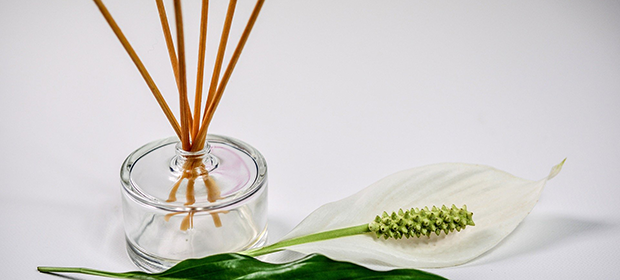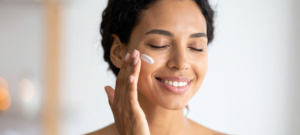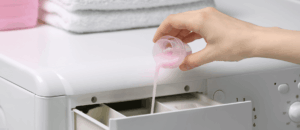We attended Mintel’s recent webinar, ‘Surviving and thriving in the “next” normal for fragrance’, to better understand the challenges and opportunities that face the fragrance market now and in the short, medium and long term future.
While the webinar was primarily focussed on the beauty and personal care market, in particular fine fragrances, there is a lot of crossover we can observe between all industries proactively using fragrance in their formulations.
The Role Of Fragrance In A Pandemic
A pandemic is not solely a medical crisis. There are a host of other issues that come alongside it, some with far greater long term impacts (such as economic, social, and mental health).
We’d like to focus on mental health in particular, as it has been scientifically proven that scent can positively affect mental health. Issues such as social isolation, cabin fever, depression and anxiety can be alleviated by sensory experiences.
‘Experiences’ is the key word here. Olfactory experiences can lift the mood, provide nostalgic relief and can even take us to far-flung and exotic places in our minds! Interestingly, searches for worldwide travel have increased during the world’s time in lockdown – as people plan for future travel and practice escapism.
So brands can go some of the way to helping people travel without travelling by tapping into this desire to leave home at home. Exotic scents, sea spray, country fields, spice markets – all these thrilling or relaxing locations that we’re missing out on can be sensorially experienced from the safety of our own homes.
In addition to providing an experience, scents are well-known mood controlling and altering tools. And already the industry is seeing a predictable uptick in calming, stress-relieving fragrance interest.’Invigorating’ is another key area, as some will want to be calmed and some will want to be motivated.
Brands who can offer up a product that does good for mental wellbeing are on the right tracks, and this extends well beyond personal fragrance. The capacity for fragrance to excel in a pandemic already exists – brands simply need to focus on a story to engage consumers in either the escapism or mood controlling areas to truly have an impact.
As well as personal fragrance, fragrances can be used in other personal care products, home care products, automotive products, and institutional care products.
The Fusion Of Scent, Sustainability & Science
A key trend for the last few years, which is here to stay, is sustainability. It follows on from the trend to include naturally derived chemicals in formulations, and goes hand-in-hand with the ingredient transparency trend. However this sustainability trend is evolving too.
Consumers are becoming more aware that an increase in ingredients grown in the natural world could also have a negative impact on the environment. And so there is a difficult grey area between using naturally derived ingredients and ensuring that the growing and harvesting of these ingredients isn’t detrimental to wildlife and the environment.
As a result, the educated consumer is becoming more amenable to the fusion of science and sustainability; understanding that one can benefit the other massively.
The key word here is ‘biotechnology’. This is not a brand new area for the industry, but it is now becoming more readily accepted by consumers. In addition, biotech is a good tactic for brands to use to keep costs under control in a pandemic environment and an industry likely to be affected by economic downturn.
So brands who are able to incorporate biotechnology into their scented products, and explain to their audience the many ways in which this will benefit them and the environment, could do well. Again, this is not limited to personal fragrance.
Recession Spending
In an industry such as personal fragrance, where the product is considered a luxury and so carries a luxury price tag, we would expect to see some difficulty during a pandemic. There is no doubt that the world is heading into an economic depression as a result of Covid-19 and so brands should be sensitive to this when it comes to high-end products.
As mentioned, advancements in biotech and the consumer’s acceptance of the role of science can help brands keep costs down. But diversification is also massively important across the industry.
As with many personal and household care trends we’ve been monitoring, there is a growing popularity for multifunctional products. Whether that be multiple benefits rolled into one product, or a product that can be used in many different ways.
We’re already seeing brands cross categories by producing fragrance products that can be used on skin, clothing and across the home. We’re seeing fragrance coming in as a sensory/wellbeing USP across personal and home care products where previously scent was an afterthought. So this really is an exciting time for the role of fragrance.
Luxury brands are also investing time and effort into limited edition collection collaborations with high street retailers – this is a great way to boost sales and introduce yourself to a new audience sector without damaging your luxury brand. And formulators can certainly use this to their advantage when experimenting with fragrance at low costs.
The Changed Retail Experience & Learning From China
The pandemic began in China, and for a variety of reasons it appears that they have a head-start on ‘the new normal’. The fragrance market in China is providing a lot of insight for fragrance-based formulators and brands at this time.
Interestingly 46% of Chinese consumers will wear fragrance only on a special occasion (and 62% among men), so the fragrance market in China is very much in its infancy when compared to Europe.
On top of this, the way fragrance is purchased in China is very different to Europe and most other countries in the world. In Europe we expect to be able to go into a store to test fragrances, we will open a shampoo bottle in the supermarket and check the fragrance is pleasing to us, or we will even try to catch a scent through packaging. The coronavirus pandemic has put a sudden end to these consumer habits. For cosmetics, testers are likely a thing of the past, and for all other scented products we wouldn’t dream of picking something off a shelf and taking a deep sniff of an item that could have been touched by hundreds of other people.
In China 86% of personal fragrances are bought online with the consumer never having experienced the scent at all. This is because online shopping is far the preferred method in China – and online fragrance shopping is the only feasible way forward for the rest of the world at this time.
So how do you sell a fragranced item without allowing anyone to experience it? The trick is to engage the other senses and provide an experience to help a consumer become excited about the fragrance, the science behind it, its intended purposes and reviews from other consumers. We can utilise colour, motion, sound, description, and science to describe a fragrance to our audience. It’s going to be more about selling the potential experience, so that a consumer buys into it before they even get to smell it.
Fragrances At Chemlink
We have access to a fantastic portfolio of fragrances for various applications and our team of technical chemists is ready to help you bring scent into your formulations as a USP.
Exciting areas we’re working on at the moment include but are not limited to:
- Sanitising formulations with sensory USPs
- Home care with fragrance as a USP
- Personal care formulations with sensory USPs
- Institutional care formulations with fragrance as a USP
Get in touch with our team now to request more information and to discuss your upcoming formulations for a Covid-19 and post-Covid-19 world:
[contact-form-7 id=”1382″ title=”Chemlink Enquiry Form”]
Source: Mintel webinar July 2020







